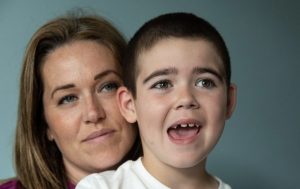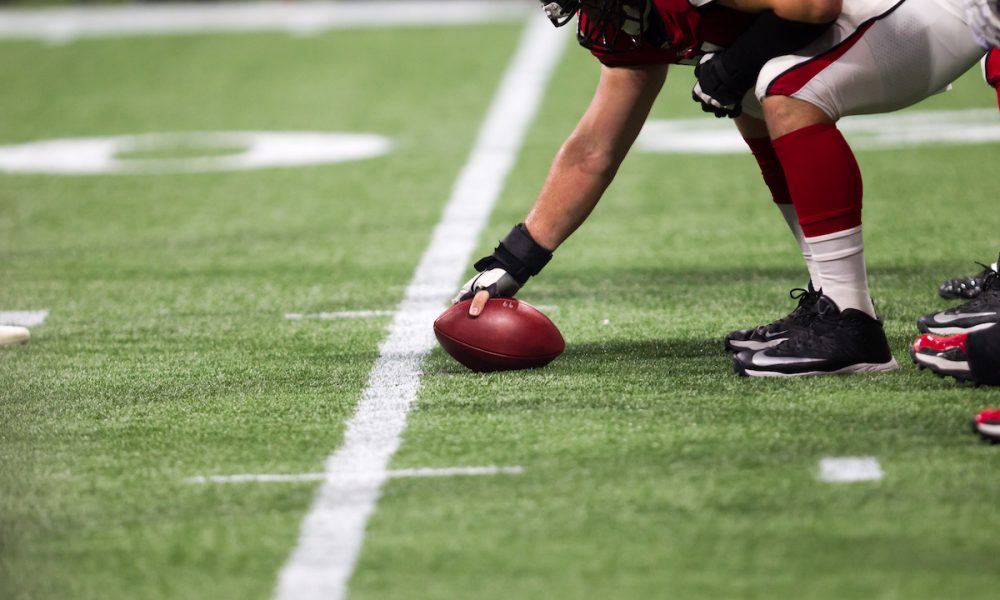Campaigner Hannah Deacon is calling on the Prime Minister to “stop the suffering” of children who need NHS access to medical cannabis.
Three years on since her son was granted access to medical cannabis in the UK, Hannah Deacon will return to Downing Street today in the hopes of meeting with the Prime Minister again.
On 19 June 2018, Alfie Dingley became the first patient in the UK to receive a permanent license which meant he could be prescribed medicinal cannabis on the NHS.
Alfie is one of several children who suffer from rare forms of treatment-resistant epilepsy, which is drastically improved by cannabis medicines.
He has now been seizure free for over a year on Bedrolite oil.
Deacon’s successful campaign led to the landmark legalisation of medical cannabis in November 2018, but three years later only three prescriptions are believed to have been issued on the NHS.

Hannah Deacon and son Alfie Dingley.
On Wednesday 16 June, Deacon will be outside Number 10 to ask Prime Minister Boris Johnson to meet with her to “sort this mess out” and “stop the suffering” of patients and their families.
In a letter to Mr Johnson, Deacon appeals to him as a “fellow parent” and warns that families who are unable to afford the private prescription fees, are being forced to turn to the black market.
The National Institute of Health and Care Excellence (NICE) has previously said there is not enough “pharmaceutical grade evidence” to warrant the approval of cannabis medicines on the NHS and have called for more randomised controlled trial (RCT) data.
But real-world evidence from Drug Science and Project Twenty21 data from 22 patients with epilepsy who have been prescribed privately whole plant medical cannabis products has shown a predicted 84 percent improvement in symptoms.
The evidence also shows that paediatric patients are kept out of hospital and their quality of life hugely improves.
Deacon says there is now enough real-world evidence to move to the observational clinical trials, which were promised in the NHS England review commissioned by Matt Hancock in March 2019.
Today I’m handing in this letter to @10DowningStreet along with Ilmarie and her son Thomas, whose brother Eddie, who has severe epilepsy. We’re asking him to listen to us, understand the issues that his family faces and to intervene now to make this medicine available on the NHS pic.twitter.com/eqcUO9l6KW
— Hannah Deacon – Alfies Hope (@Hanseizuremum) June 16, 2021
“Unless the fact is more widely acknowledged, we will remain forever stuck with access blocked for very poorly children who are either left suffering unnecessarily, forced to pay thousands of pounds privately or even more worrying drawn to the black market,” she says.
“This abominable situation is putting the power of some of these children’s wellbeing at the hands of criminals.”
Recently more than 100 Parliamentarians wrote to Mr Johnson asking him to intervene to help families fund these prescriptions until there is wider access on the NHS, but to date the letter remains unanswered.
Deacon will be joined outside Number 10 by Ilmarie Braun and her son Thomas, nine, whose brother Eddie, six, has a severe form of complex epilepsy known as West syndrome.
Thomas has written a personal letter to the Prime Minister urging him to help his brother access medical cannabis on the NHS.
In Edinburgh, 13-year-old Dean Gray will be outside Bute House with his own letter for Scottish First Minister, Nicole Sturgeon.
Dean’s brother Murray has now been seizure-free for two years on medical cannabis treatment, which can cost up to £2,000 a month.
In March this year NICE issued a clarification to its 2019 guidelines on prescribing cannabis-based medicinal products for severe treatment-resistant epilepsy, making it clear that clinicians can prescribe these medicines in appropriate cases.
The body said that there was “insufficient evidence of safety and effectiveness to support a population-wide practice recommendation” for the use of cannabis-based medicines, but says this should not prevent healthcare professionals from considering their use in individual cases.
A NICE spokesperson said: “The fact that NICE made no population-wide recommendation for the use of cannabis-based medicines for people with severe treatment-resistant epilepsy should not be interpreted by healthcare professionals as meaning that they are prevented from considering the use of these medicines where that is clinically appropriate in an individual case.
“Patients in this population can be prescribed cannabis-based medicines if the healthcare professional considers that that would be appropriate on a balance of benefit and risk, and in consultation with the patient, and their families and carers or guardian. We have clarified the guideline to make this clear.”
A Department of Health and Social Care spokesperson said: “We recognise the huge challenges faced by children living with rare and hard to treat conditions.
“The government changed the law to allow specialist doctors to prescribe unlicensed cannabis-based products for medicinal use where it is clinically appropriate and in the best interests of patients.
“Licensed cannabis-based medicines are funded by the NHS, where there is clear evidence of their safety and clinical effectiveness.”

